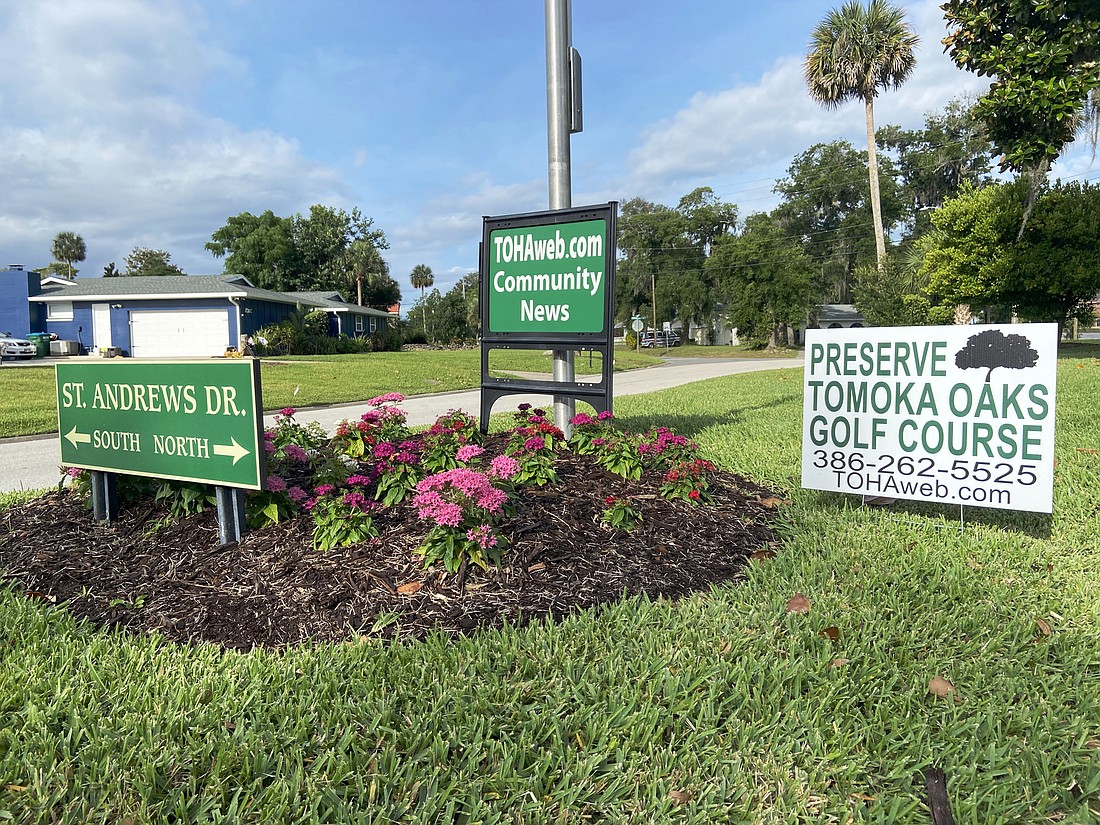- December 15, 2025

The developers of the proposed Tomoka Reserve subdivision — whose rezoning request that would have led to the construction of 300 homes on the former Tomoka Oaks golf course was denied by the City Commission last April — have filed a federal lawsuit against the city of Ormond Beach.
Filed on Dec. 26, 2024, at the U.S. District Court's Orlando Division, the 91-page lawsuit alleges that the city's declaration that the golf course property has no allowed zoning uses by right and refusal to issue a new development order is a violation of the developers' rights. The property is currently zoned as a Planned Residential Development; its previous development order expired in 2014, four years before the golf course officially closed.
At a City Commission meeting on April 16, 2024, the commission unanimously denied a rezoning of the property to R-2 “Single-family low density,” in line with the Planning Board’s recommendation to deny. Triumph Oaks of Ormond Beach I LLC, the developers, were seeking a rezoning after their plans to build a 272-home subdivision under the PRD zoning were sent back to the Planning Board by the commission in November 2023. Commissioners requested the developers submit a new site plan, one with less density and better conformity with the existing Tomoka Oaks neighborhood, whose residents largely oppose the project.
"The city’s determination that Triumph Oaks has no lawful development rights for its property unless and until it negotiates an 'acceptable' definition of those private-property rights with area residents and the city’s elected officials constitutes an unlawful taking of the property without payment of just compensation," the lawsuit states.
Developers purchased the 147-acre golf course property in 2021. The property was zoned R-2 prior to a rezoning to a PRD in 2006, when its owner at the time sought to construct a 122-unit townhome and condominium project. Due to the recession, this never happened.
In October 2024, the developers filed an appeal with the Seventh Judicial Circuit of the City Commission's decision to deny their rezoning request, a case that could have been heard by a special magistrate. However, the city and the developer were not able to reach an agreement in choosing a mediator.
In the federal lawsuit, attorney Karl Sanders, who represents Triumph Oaks, states that the city's refusal to grant the developers a zoning designation constitutes an "unlawful taking of private property." The lawsuit argues that the commission's rezoning denial "reflects an attempt to 'strong-arm' Triumph Oaks into relinquishing its constitutional and statutory rights" to be able to develop the property.
“For more than four years now, the owners of this property have repeatedly reached out to both area residents and elected officials at City Hall to formulate a development plan that pleased everyone,” Sanders said in a statement to the Observer. “And while significant progress was made in those discussions, there comes a point where elected officials need to make difficult decisions that will inevitably fall short of pleasing everyone involved. That never happened here, and the city has continued to ignore the multiple efforts of Triumph Oaks to have meaningful discussions about resolving all outstanding issues.”
Sanders said that the biggest misconception is that “local elected officials can trump the constitutional rights of private property owners.”
“When the city repeatedly tells you that your private property has ‘no development rights’ unless and until the city says it does, that’s a real problem,” Sanders said. “And, thanks to the protections afforded by the Constitution, there’s a simple solution to that problem: The government can either decide to have meaningful discussions about resolving the issues or it can pay just compensation for the taking of private property.”
In an email, City Attorney Randy Hayes said that the resolution that was approved by the City Commission last year addresses the developer’s issues."
"The only strong-arm position that has been taken is by the developer," Hayes said. "The litigation matters are pending so I cannot address those details. Mediation toward a reasonable solution is always a possibility."